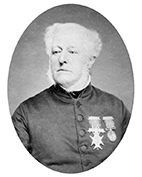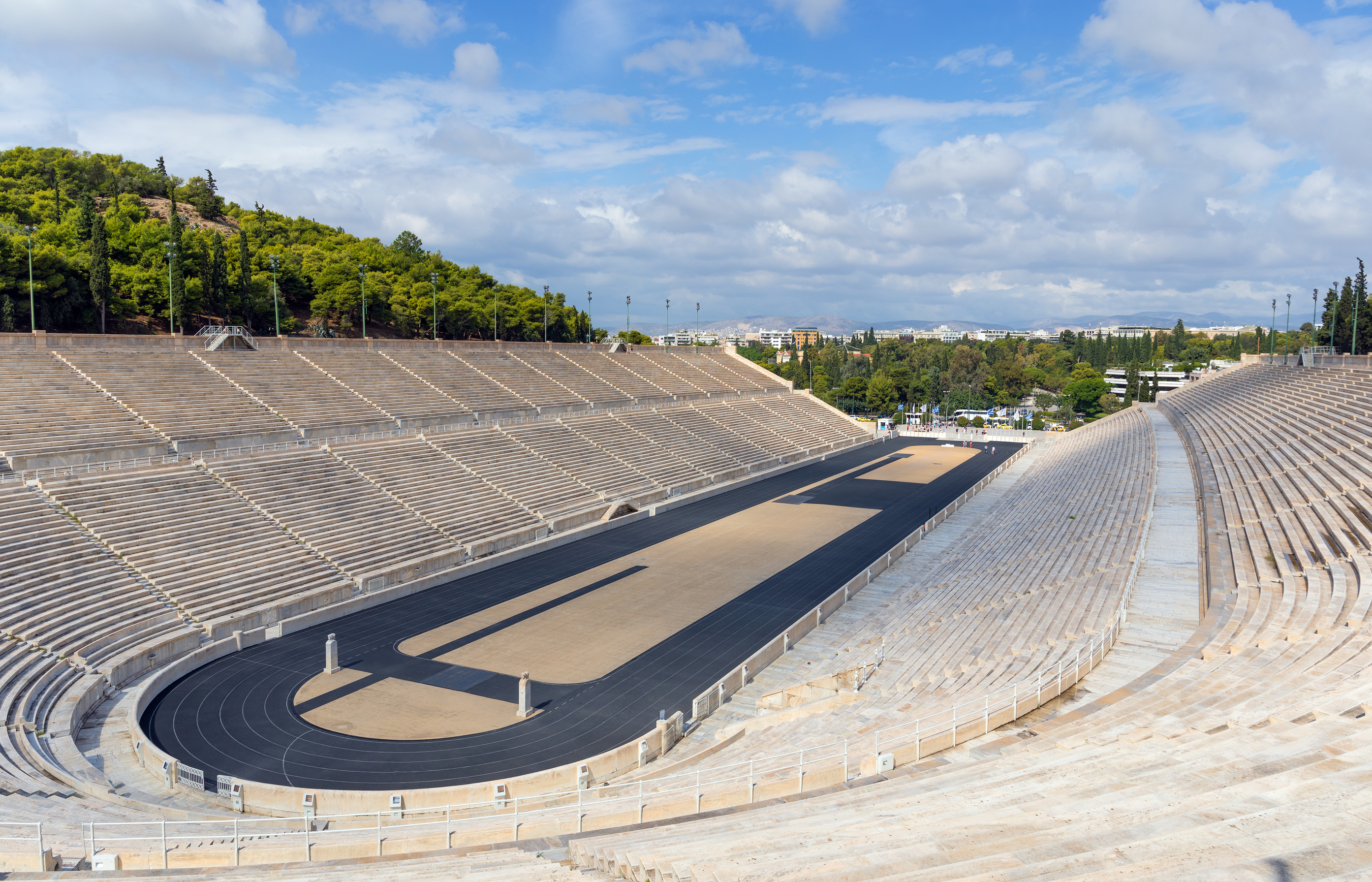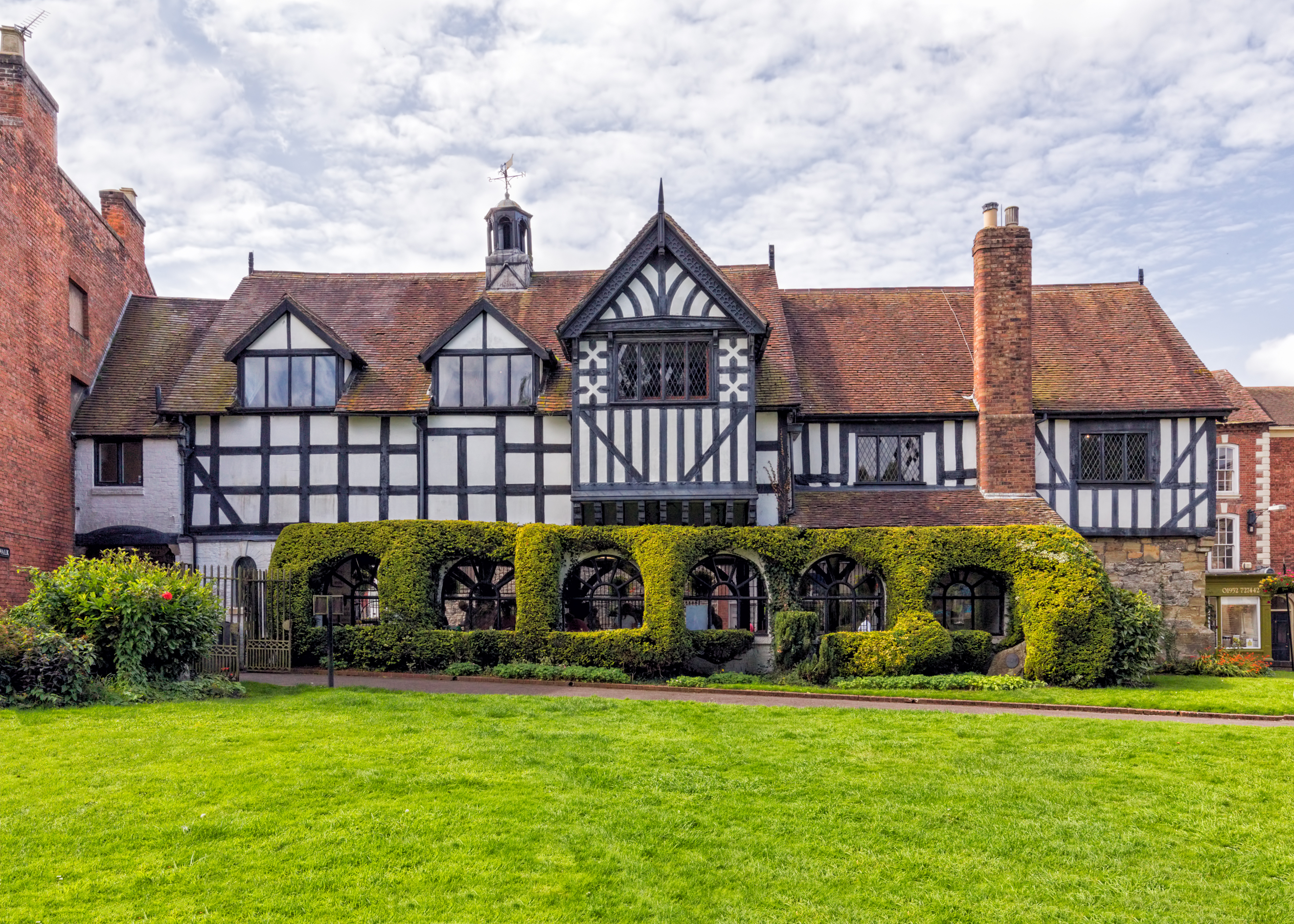Despite the perception that it was Baron Pierre de Coubertin who revived the modern Olympic Games there were in fact many Olympic events taking place throughout Europe before Coubertin was even born. One of these, set in the small Shropshire town of Much Wenlock, has been widely considered by sports historians as one of the key influences on the modern Olympics, and even delegates for the Tokyo 2020’s organising committee noted its importance and legacy.
Much Wenlock
Going to Much Wenlock is like taking a step back in time, with quaint bakeries, country walks and old-fashioned pubs. The town has a modest population; at the time of the 2011 Census it had just 2,877 residents. Each summer they host a special sporting competition, the Wenlock Olympian Games, attracting amateur athletes who compete in events including archery, clay pigeon shooting and a seven mile road race. The tale of the Wenlock Games in the present day fails to do justice to their inception in the 1800s and how their legacy developed. One of the London 2012 mascots was named Wenlock in recognition for its influence.
The annual sporting event
 Much Wenlock’s most famous figure is Dr William Penny Brookes (pictured right), born in 1809. In 1850 Brookes formed the Wenlock Olympian Games, an event that emphasised his admiration for the ancient Greek Olympics. Excluding a few short breaks, the Wenlock Games have continued annually since their inception. Whilst the Olympics of today boast a modern programme of events, the first annual Wenlock Games invoked a more rustic feel with competitions such as quoits and a blindfolded wheelbarrow race. Soon, the Games became an important event in the athletics calendar, attracting competitors from afar.
Much Wenlock’s most famous figure is Dr William Penny Brookes (pictured right), born in 1809. In 1850 Brookes formed the Wenlock Olympian Games, an event that emphasised his admiration for the ancient Greek Olympics. Excluding a few short breaks, the Wenlock Games have continued annually since their inception. Whilst the Olympics of today boast a modern programme of events, the first annual Wenlock Games invoked a more rustic feel with competitions such as quoits and a blindfolded wheelbarrow race. Soon, the Games became an important event in the athletics calendar, attracting competitors from afar.
Mirroring Olympic philosophies
Brookes sought to reflect ideologies of ancient Olympic Games highlighting one’s intense desire to win and be recognised as the best. Similarly, whilst nowhere near the level of grandeur experienced at the modern Olympics, pageantry was an important element of early Games. A band would lead the parade of flag bearers, competitors and officials from the town, in similar vein to a contemporary opening ceremony. The Games took influence from similar competitions in Greece, as Brookes discarded many rural events and the Games became more consciously ‘Olympic.’
By 1859 international relations had emerged as Brookes became more involved in the Greek Olympic movement, which was being initiated by poet, Panagiotis Soutsos. Later, Greece’s Zappas Games, offered more inspiration for Much Wenlock; Greek mottos and banners were displayed and medals featuring Nike, the Greek goddess of victory, were introduced. The Wenlock Games experienced a turning point in 1860, assuming an independent identity known as the Wenlock Olympian Society (WOS).
International relations
By the early 1870s Brookes regularly communicated with ambassadors in Greece and London to encourage the restoration of the Olympics Games. One notable individual was John Gennadius, the Greek Chargés d'affaires, who later wrote to Brookes: “I cannot but feel indebted to you that you continue with this idea, the project of a revival of the Olympic Games." In 1880 Brookes took his boldest step towards his Olympic pursuit by conceiving the idea of a recurring international event, and by the end of the decade he found someone with similar views of Olympic values, Baron Pierre de Coubertin.
The Frenchman was invited to attend an autumn edition of the Wenlock Games in 1890. Brookes wanted to enlighten Coubertin on the WOS’s efforts, with a view to develop something similar in France. It was here where Coubertin drew inspiration for the inclusion of medal ceremonies, an innovative (for its time) celebration that had been commonplace in the Wenlock Games for years. As Brookes’ lifelong dedication to Olympic values began to wind down, he passed the torch to 27-year-old Coubertin. In June 1894 Coubertin held a conference in Paris to discuss a revival of the Olympic Games - 79 delegates unanimously voted to restore them, leading to the birth of the International Olympic Committee.
A lifelong dream achieved
The first modern Olympics was originally nominated to take place in London. However, Coubertin opposed, suggesting Athens instead, echoing Brookes’ own wish. It was Brookes’ life dream that the first international Games would happen in Athens and that he would be able to attend. Half of his dream came true in 1896 as the inaugural modern Olympics were held in Athens. Unfortunately, Brookes was not able to witness it as he passed away just five months earlier.
 The Panathenaic Stadium, which hosted the first modern Olympics in 1896, Athens, Greece
The Panathenaic Stadium, which hosted the first modern Olympics in 1896, Athens, Greece
Brookes was the missing link between Soutsos and Coubertin, or simply put, the missing link between the Zappas and the 1896 Athens Games. This is not to discredit the work of Coubertin; he was the first to formulate many Olympic principles – all sports, all nations, all people. In many ways Coubertin preserved Brookes’ life’s work; had the Olympics not been revived much of what Brookes had dedicated his time to would have been in vain.
So, when you sit down to watch the Tokyo Games take a brief moment to consider that had Coubertin not visited Much Wenlock in 1890, the modern Olympic movement as we know it today could look very different.











Rate and Review
Rate this article
Review this article
Log into OpenLearn to leave reviews and join in the conversation.
Article reviews